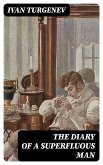Lascelles Abercrombie's "The Epic" delves into the intricate fabric of epic poetry, exploring its origins, evolution, and the cultural significance it holds across various civilizations. Through a blend of critical analysis and poetic expression, Abercrombie employs a sophisticated yet accessible literary style that invites readers to engage deeply with the characteristics defining epic narratives. The text is enriched by its historical context, highlighting how epics reflect the values and struggles of their respective societies, from Homer's Greece to modern interpretations, making it a vital resource for understanding the genre's profound impact on literature. Abercrombie, an influential figure in the English literary scene of the early 20th century, was both a poet and a critic, known for his advocacy of the craft of poetry. His keen interest in form and thematic depth led him to dissect epic poetry with a penetrating insight and passion, which is evident throughout this work. Being acquainted with various literary movements, including Georgian poetry, Abercrombie synthesized these influences into a coherent exploration of the epic form, drawing on his own extensive readings of classic works. "The Epic" is highly recommended for scholars, students, and literary enthusiasts alike, as it provides a comprehensive and critical lens through which to appreciate the grandeur of epic poetry. Abercrombie's thoughtful examination not only enhances our understanding of the genre but also offers inspiration for contemporary writers, making it an essential addition to any literary collection.
Dieser Download kann aus rechtlichen Gründen nur mit Rechnungsadresse in A, B, BG, CY, CZ, D, DK, EW, FIN, F, GR, H, IRL, I, LT, L, LR, M, NL, PL, P, R, S, SLO, SK ausgeliefert werden.









